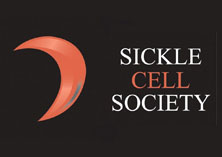One Year on from ‘No One’s Listening’ – the Sickle Cell & Thalassemia APPG report into Sickle Cell healthcare in the UK
On 15th November 2021 the Sickle Cell and Thalassemia All Party Parliamentary Group released a parliamentary report seeking to capture the reality of Sickle Cell and Thalassemia healthcare in the UK.
The report revealed many heartbreaking realities faced by Sickle Cell and Thalassemia patients. The findings of the report highlighted a generally low awareness of Sickle Cell among healthcare professionals across the UK. This led to extremely traumatic experiences in hospitals where Sickle Cell patients in excruciating pain were left to wait for hours, were often deeply misunderstood, or simply did not receive the timely and effective treatment for their condition.
Basic understanding of the condition covers an awareness of the need to keep Sickle Cell patients well hydrated, warm and providing the administration of effective pain relief within 30 minutes in accordance with NICE guidelines. They then require timely check-ups as they stabalise after a pain crisis.
As the fastest growing genetic blood condition in the UK, Sickle Cell affects approximately 15,000 people in the UK. The condition changes the shape of red blood cells leading to debilitating crises which cause sufferers extreme pain throughout the body. Sickle Cell can also have a severe impact on joints, kidneys and patients are at high risk of stroke and other health complications.
Sickle Cell affects every single aspect of a person’s life from their ability to participate normally in work and education as well as having an impact on mental and emotional health predominately from dealing with sustained levels of pain and extreme fatigue.
The report explicitly highlighted that the troubling health care inequalities faced by Sickle Cell patients were unavoidably linked to racism as the condition predominantly affects those from African and Caribbean backgrounds. The report references the negative attitudes and stereotypes that Sickle Cell patients face when visiting hospital.
The report called for nationwide improvements in Sickle Cell care across the country. The strength of the report was triggered by the tragic and avoidable death of Evan Smith who sadly passed away after calling 999 from his hospital bed. The investigation into his death highlighted a lack of understanding of his Sickle Cell as a contributing factor to his death. Devastatingly, there have been other Sickle Cell deaths since Evan’s passing due to similar reasons.
Since the launch of the report in November 2021, a Westminster Hall debate on Sickle Cell took place, alongside a commitment from the then Secretary of State, Sajid Javid MP, that there would be a government national action plan to address the healthcare inequalities faced by those with Sickle Cell and other red cell disorders.
In the year since the report, the NHS Royal Health Observatory have begun a research piece on Sickle Cell, with a focus on race. The NHS have also launched the ‘Can You Tell It’s Sickle Cell’ campaign to raise awareness of the condition amongst the public and healthcare professionals, alongside a commitment to review the Sickle Cell healthcare pathway.
However, until all Sickle Cell patients have their trust restored in the healthcare system and can feel confident that they will be treated with empathy and the requisite knowledge of their condition – there remains work to be done.
On the anniversary of the report, the Sickle Cell Society, the Sickle Cell and Thalassemia APPG alongside the many voices of Sickle Cell patients, their families and carers, national charities and campaign groups cannot emphasise enough the lifesaving importance of a Sickle Cell healthcare review in the UK. This is to ensure that avoidable deaths of Sickle Cell patients and harrowing traumatic hospitalisations are no longer the norm for this section of our society.
Janet Daby MP, Chair off the Sickle Cell & Thalassemia APPG, said “For too long people with Sickle Cell have been let down when they are at their most vulnerable.
As Chair of the APPG, it is my ambition to ensure all the recommendations from this report are implemented in full. If this happens patient experiences in healthcare settings will improve dramatically.
It is time for Sickle Cell to be taken seriously.”

